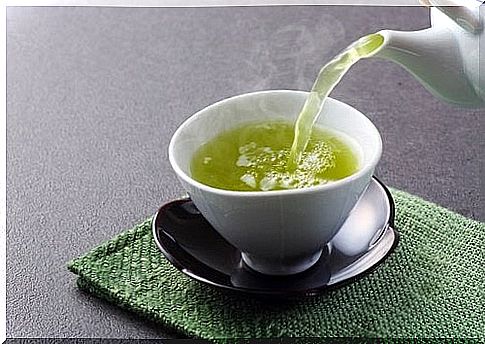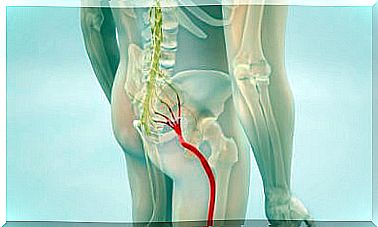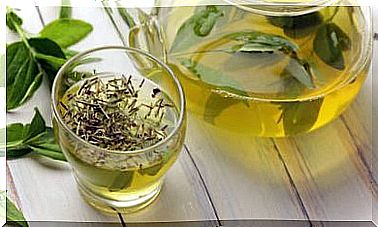Foods That Help You Fight Stress
There are foods that help you fight stress. Thanks to its composition and nutrients we can resort to different natural, tasty and healthy proposals with which to improve our mood.
If there is one thing we all know, it is that dealing with this psychological condition is not easy. Stress impacts our body and health, as well as our thinking style: it becomes more negative, obsessive and repetitive. Thus, when managing these states we must make use of a multidisciplinary approach.
You have to learn to “think better.” Applying more thoughtful, relaxed and mindful approaches will undoubtedly avoid going on automatic pilot, thus falling into those abysses inhabited by stress and anxiety.
Likewise, we also need to start new life habits. Establishing priorities, taking care of our rest schedules and attending to our diet will allow us to perceive positive changes.
On the other hand, although it is true that there are certain foods capable of improving mood, we must never neglect professional help.
Stress is that enemy that blurs everything, that alters everything and that can make us lose our health. Asking for clinical help is in many cases the best option.
However, let’s see what nutritional proposals can help us complement this strategy to reduce stress.
What science tells us about foods that help you fight stress
Can our diet improve our mood and reduce stress? The answer has nuances. In the first place, we must be clear that diet not only has an impact on our health, it also has an impact on our psychological well-being.
Therefore, there are foods that, although healthy, do not generate any improvement in stressful conditions. Now, there are other options where science has shown that indeed, certain foods have therapeutic virtues to improve (not reduce completely) stress states.
As they explain to us through studies such as the one carried out at the University of Cork, in Ireland, natural products rich in fiber are, for example, those that have the most positive effects. However, let’s see what else foods help you fight stress.
Green tea

The University of Basel conducted a study in 2017 where it showed that green tea is suitable for reducing states of anxiety and stress.
This natural drink contains powerful antioxidants such as polyphenols, flavonoids, and catechins. All of these antioxidants may mediate a more positive mood, due to their calming effect on the mind and body. The positive effects of green tea tend to be more among people who do not drink alcohol or smoke.
Blueberries
Blueberries contain a large amount of antioxidants. Likewise, its high content of vitamins C and vitamin E, along with minerals such as magnesium and manganese, can also be very effective in improving our well-being and reducing stress.
Regular consumption of blueberries may be helpful in treating mood disorders, depression, and insomnia. That is, by themselves they will not make these states resolve, they will favor our well-being by facilitating, for example, rest and relaxation.
So much so, that as revealed in a study published in the Experimental Biology review , blueberries can improve the condition of patients with post-traumatic stress disorder.
Kefir

Kefir is low in lactose, it is well digested and is one of the best foods for our intestines. As we well know, the intestinal flora has a role in the production of serotonin, the hormone of well-being and happiness.
Therefore, if we take a little kefir every day for breakfast, it could improve our energy and well-being. Among the foods that help you fight stress, this is one of the most recommended.
Spinach
Green vegetables like spinach are rich in vitamins C, A and E. This healthy and beneficial proposition contains a good amount of minerals such as calcium, potassium, magnesium and phosphorus, capable of regulating stress hormones, such as cortisol.
Almonds
Among the foods that help you fight stress, you can not leave out the almonds. Ideal if every day you have between 5 or 6 with your breakfast.
Likewise, as revealed by a Harvard University study, foods rich in vitamin E, vitamin B, magnesium and zinc, help us reduce states of anxiety and stress.
An example of this is undoubtedly almonds, which also contain an excellent source of fiber, ideal for reducing blood pressure and increasing your energy level.
Dark chocolate
Consuming about an ounce and a half of dark chocolate a day can reduce the level of stress hormones present in the body. Chocolate contains magnesium, which is a mineral that fights against stress, fatigue, depression, and irritability.
Salmon
The omega-3 fatty acids in salmon increase brain chemicals like serotonin (which helps you feel happy) and may regulate some stress hormones like cortisol and adrenaline. It is advisable to eat two or three servings of salmon a week.
Integral rice
Brown rice contains a good amount of B vitamins, which are very important in the maintenance of cells, tissues and organs. When the body receives adequate amounts of B vitamins, it helps accumulate less stress and suffer fewer mood disorders.
Among the foods that could help combat stress, this is undoubtedly the most versatile.
Avocado
Some studies reveal the great benefits of moderate but regular consumption of avocado. For example, in a study carried out at the University of Wimberley, United States, it was shown to help improve cardiovascular health.
Thanks to its nutrients, avocado regulates stress hormones, keeping nerves and brain cells healthy. Eating half an avocado a day, for example, will improve our blood pressure and reduce inflammation. This is undoubtedly another of the foods that help you fight stress.
Conclusions
In summary, do not hesitate to include these proposals in your diet. In addition, it is important to complement this healthy diet with better lifestyle habits and with the help of a professional with whom you can learn adequate techniques to manage stress.
Think that health is defined from a bio-psycho-social perspective. This means that we will obtain the best health and quality of life if we take care of our organism, our mind and our social and family relationships.
Hence the importance of a multidisciplinary treatment that addresses all facets of the individual.
However, remember that these foods are not a substitute for medical treatment. If you feel that stress may be affecting you, it is best to go to a psychologist.









